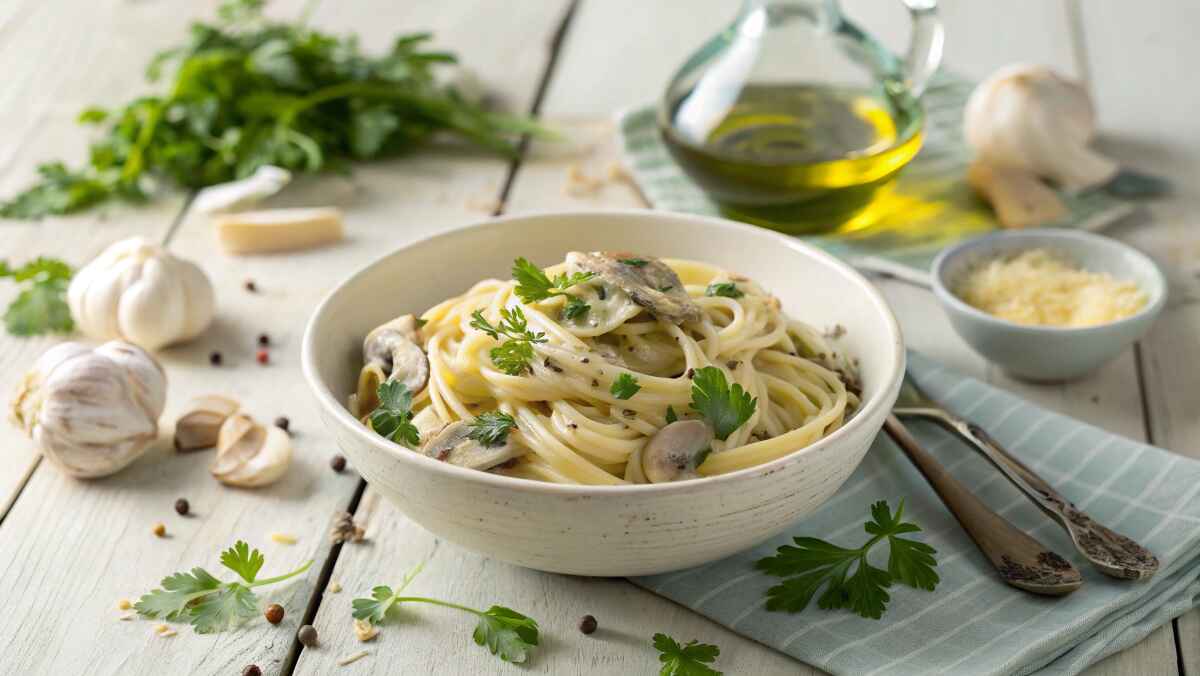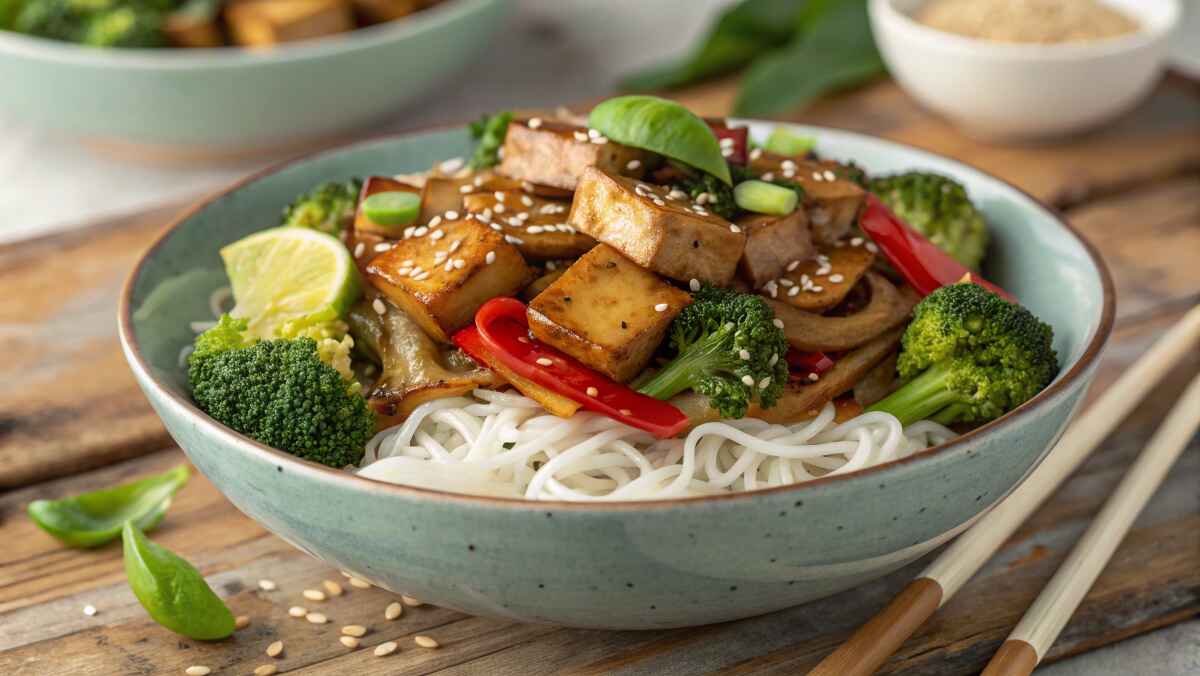Is a Grilled Chicken Wrap Healthy meal option? While they are often considered nutritious, the truth depends on the ingredients and preparation method. Let’s break down their health benefits, potential drawbacks, and how to make them even better for your diet!
Grilled chicken wraps are a convenient and flavorful meal option loved by many. However, while they are often seen as a healthy choice, it’s essential to evaluate their nutritional value in detail. This guide explores whether a grilled chicken wrap is truly healthy, its benefits, potential drawbacks, and tips to maximize its nutritional impact. Moreover, you’ll learn how to customize it to suit your dietary needs and preferences.
Health Benefits of a Grilled Chicken Wrap
Lean Protein Source
A grilled chicken wrap provides a good amount of lean protein, which is essential for muscle growth, repair, and overall body function. Compared to fried chicken, grilled chicken contains less saturated fat and fewer calories, making it a healthier option.Rich in Fiber (When Using Whole Grains)
The type of tortilla used plays a significant role in determining whether a grilled chicken wrap is healthy. Choosing a whole wheat or whole grain tortilla increases fiber intake, which supports digestion, helps maintain stable blood sugar levels, and keeps you full for longer.Packed with Essential Nutrients
A well-balanced grilled chicken wrap can include a variety of fresh vegetables such as spinach, lettuce, tomatoes, cucumbers, and bell peppers. These ingredients provide essential vitamins and minerals, including vitamin C, vitamin A, potassium, and antioxidants, which support overall health.Easily Customizable for Better Nutrition
One of the best aspects of a grilled chicken wrap is its versatility. You can control the ingredients to align with your health goals:- Opt for healthier tortillas (whole wheat, low-carb, or gluten-free options).
- Choose lighter dressings (Greek yogurt-based sauces or vinaigrettes instead of heavy mayonnaise).
- Add healthy fats (avocado, hummus, or a drizzle of olive oil instead of processed cheese).
Potential Drawbacks of Grilled Chicken Wraps
🚨 Refined flour tortillas lack fiber and can cause blood sugar spikes.
🚨 High-calorie dressings like ranch or mayo add unhealthy fats.
🚨 Excess cheese or processed toppings increase sodium and saturated fat.
How to Make a Grilled Chicken Wrap Even Healthier
✅ Switch to a whole wheat or low-carb tortilla
✅ Load up on fresh vegetables for extra fiber & vitamins
✅ Use grilled chicken instead of fried
✅ Opt for light dressings (Greek yogurt, vinaigrette, or hummus)
✅ Incorporate healthy fats (avocado, olive oil, or nuts)

Understanding the Components of a Grilled Chicken Wrap
At their core, grilled chicken wraps combine key ingredients that can create a nutritious meal. However, their healthiness depends on how these components are chosen and prepared.
- Grilled Chicken: A lean protein source that provides essential amino acids while being low in fat.
- Tortilla: The base, which can be made from refined flour, whole grains, or low-carb alternatives.
- Vegetables: Fresh or roasted veggies like lettuce, tomatoes, and bell peppers add vital nutrients.
- Sauces and Spreads: Dressings such as hummus, ranch, tzatziki, or avocado can enhance flavor but also add calories.
Because each ingredient plays a significant role, making healthier choices for each component is crucial. For example, using whole wheat tortillas instead of refined flour ones significantly boosts the fiber content.
Nutritional Breakdown: What’s Inside a Grilled Chicken Wrap?
To evaluate whether grilled chicken wraps are healthy, let’s break down their nutritional composition.
Macronutrients
- Calories: A typical grilled chicken wrap contains 300–500 calories depending on portion size and added sauces.
- Protein: With approximately 25–30 grams of protein, it provides a substantial portion of your daily requirement.
- Carbohydrates: Wraps often have 30–50 grams of carbs, depending on the type of tortilla.
- Fats: Healthy wraps can include 10–20 grams of fats, often from avocados, olive oil, or cheese.
Micronutrients
- Vitamin C: Found in vegetables such as tomatoes and lettuce, supporting immune health.
- Fiber: Sourced from whole wheat tortillas and veggies, aiding digestion and promoting satiety.
- Iron: Present in chicken and leafy greens, vital for oxygen transport in the body.
If you’re comparing this to other meals, you might find grilled chicken wraps healthier than heavier alternatives like fried chicken sandwiches. For more wholesome options, consider a recipe like butternut squash lasagna.
Why Grilled Chicken Wraps Can Be Healthy
Grilled chicken wraps offer several health benefits that make them an excellent choice for various diets. Let’s delve deeper into why they are a good option.
1. High in Protein
Protein is a vital macronutrient for muscle repair, growth, and sustained energy.
- Muscle Repair and Growth: Because grilled chicken is rich in amino acids, it helps rebuild muscles after workouts.
- Satiety: Protein promotes feelings of fullness, reducing hunger and aiding in weight management.
- Energy Stability: Furthermore, protein helps regulate energy levels, preventing sudden crashes.
For additional protein-packed meal ideas, check out high-protein breakfast recipes.
2. Rich in Vegetables
Adding fresh vegetables enhances both the nutritional value and taste of grilled chicken wraps.
- Antioxidants: Tomatoes and bell peppers are rich in antioxidants, which combat oxidative stress.
- Dietary Fiber: Fiber supports digestion and helps lower cholesterol levels.
- Vitamins and Minerals: Leafy greens and carrots are loaded with vitamins A, C, and K, which are essential for overall health.
Moreover, pairing your wrap with a side like chickpea salad can increase your nutrient intake further.
3. Balanced Carbohydrates
Using whole wheat tortillas ensures that your wrap contains complex carbohydrates. These provide long-lasting energy, unlike refined carbs that cause blood sugar spikes. Moreover, whole grains add fiber and other essential nutrients that promote gut health.
If you’re looking to reduce carbs, wraps can easily be modified with alternatives like low-carb bread or lettuce leaves.
4. Contains Healthy Fats
Including ingredients like avocado or olive oil ensures that your wrap contains heart-healthy monounsaturated fats.
- Heart Health: These fats can reduce bad cholesterol levels and improve cardiovascular health.
- Nutrient Absorption: Furthermore, healthy fats help your body absorb fat-soluble vitamins like A, D, E, and K.
For a Mediterranean twist, add hummus or tzatziki, which are flavorful yet lower in saturated fats than traditional creamy dressings.
Potential Drawbacks of Grilled Chicken Wraps
While grilled chicken wraps can be healthy, certain factors may reduce their nutritional value. Addressing these can ensure you enjoy their benefits without compromising your diet.
1. High-Calorie Dressings
Many wraps include sauces like ranch or mayonnaise, which can add unnecessary calories and fats.
- Solution: Replace calorie-heavy dressings with lighter options such as Greek yogurt or olive oil-based vinaigrettes.
2. Refined Tortillas
Refined flour tortillas lack fiber and can contribute to blood sugar spikes. On the other hand, whole wheat tortillas or gluten-free options are far more nutritious.
3. Sodium Content
Pre-packaged wraps or marinades often contain high sodium levels. Overconsumption of sodium may lead to bloating and increased blood pressure.
- Solution: Prepare your chicken and sauces at home to control salt levels effectively.
Tips for Making Grilled Chicken Wraps Healthier
By tweaking ingredients and preparation methods, you can make grilled chicken wraps even healthier.
1. Use Whole Grains
Switch to whole-grain or gluten-free tortillas to boost fiber and lower refined carb intake. Alternatively, use large lettuce leaves for a low-carb option.
2. Increase Vegetable Content
Add a variety of vegetables, such as spinach, zucchini, cucumbers, and roasted bell peppers. This not only adds color but also increases vitamin content and antioxidants.
3. Opt for Lighter Dressings
Replace heavy sauces with:
- Greek yogurt mixed with lemon juice and garlic.
- Hummus for a creamy yet healthier alternative.
For more flavorful inspirations, explore recipes like Mediterranean chickpea salad.
4. Focus on Healthy Fats
Incorporate avocado or olive oil for their heart-healthy monounsaturated fats. Moreover, these ingredients enhance flavor while offering health benefits.
Creative Variations for Every Lifestyle
Grilled chicken wraps can be adapted to fit various diets and preferences. Here are some creative ideas:
1. Keto Chicken Wrap
- Replace tortillas with lettuce leaves.
- Add high-fat, low-carb ingredients like avocado and cheese.
2. Mediterranean Chicken Wrap
- Use hummus, olives, and feta cheese.
- Pair with garlic soup for a light, nutrient-dense side.
3. Spicy Buffalo Wrap
- Toss chicken in buffalo sauce.
- Use low-fat blue cheese dressing and add shredded carrots for crunch.
Are Grilled Chicken Wraps Healthy?
Grilled chicken wraps can be a healthy and satisfying meal option, but their nutritional value depends largely on the ingredients used. When prepared with wholesome, nutrient-dense components, they can provide a well-balanced mix of protein, fiber, healthy fats, and essential vitamins and minerals.
Health Benefits of Grilled Chicken Wraps
- Lean Protein Source
Grilled chicken is an excellent source of lean protein, which is essential for muscle repair, metabolism, and satiety. Compared to fried chicken, grilled chicken contains significantly less saturated fat and fewer calories, making it a healthier choice. - High in Fiber (When Using Whole Grains)
The type of tortilla used plays a crucial role in the wrap’s overall health benefits. Whole wheat or whole grain tortillas provide more fiber than their white flour counterparts, promoting digestive health and keeping you full for longer. - Rich in Vitamins and Minerals
Adding fresh vegetables like spinach, lettuce, tomatoes, bell peppers, and cucumbers increases the wrap’s vitamin and mineral content. These vegetables provide essential nutrients such as vitamin C, vitamin A, potassium, and antioxidants, which support immune function and overall well-being. - Customizable for Healthier Choices
One of the best aspects of grilled chicken wraps is their versatility. You can control the ingredients to suit your dietary needs:- Opt for healthier tortillas (whole wheat, low-carb, or gluten-free alternatives).
- Choose light or homemade sauces to reduce added sugars and unhealthy fats (e.g., Greek yogurt-based dressings instead of mayonnaise).
- Include healthy fats from sources like avocado, hummus, or a drizzle of olive oil instead of processed cheese.
Potential Pitfalls to Watch Out For
While grilled chicken wraps can be a healthy choice, they can also become calorie-dense and less nutritious if not prepared mindfully. Here are some factors to be aware of:
- High-calorie or refined tortillas – Large white flour tortillas can add unnecessary refined carbs and extra calories.
- Fat-laden dressings and sauces – Ranch, mayonnaise, or creamy dressings can turn a healthy wrap into a high-fat, high-calorie meal.
- Excess cheese or processed toppings – While cheese adds flavor, too much of it (especially processed cheese) can increase saturated fat and sodium levels.
Final Verdict: Is a Grilled Chicken Wrap Healthy?
Yes! When prepared with whole ingredients, a grilled chicken wrap is a nutritious, protein-rich meal. By choosing whole wheat tortillas, fresh veggies, lean chicken, and healthy fats, you can enjoy a delicious and balanced meal without guilt.
➡️ Want to learn more about healthy eating? Check out this resource on balanced nutrition from Harvard T.H. Chan School of Public Health:
The Nutrition Source – Harvard T.H. Chan




